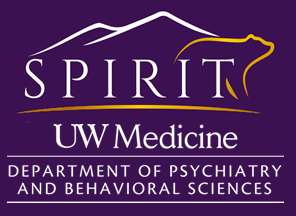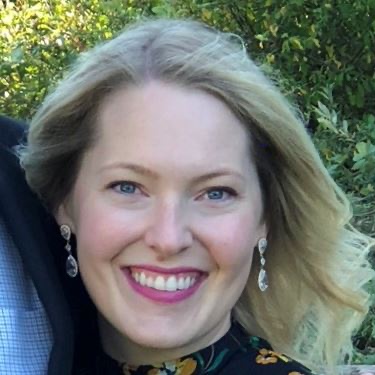Home > Essentials of Care for Supporting Individuals with Serious Mental Illness: A Learning Lab Series | Fall 2021

The Northwest MHTTC is excited to sponsor a limited number of seats for Region 10 providers in the live learning learning lab series hosted by the University of Washington's SPIRIT (Supporting Psychosis Innovation through Research, Implementation, & Training) Lab. Sessions are offered each week from October 6 through November 24, 2021. Each 2-hour session focuses on a different topic.
Each session includes expert-led instruction and experiential learning focused on aspects of supporting individuals with serious mental illness (SMI) across a range of clinical settings. Two (2) hours of Continuing Education (CE) credits are offered for each learning lab attended.
While the topics build upon each other, you are welcome to choose the individual sessions that work best for your schedule and needs.
The SPIRIT Lab has been providing workforce development to practitioners serving individuals with Serious Mental Illness for more than a decade. Driven by a dedication to advancing recovery for individuals and families affected by psychosis, SPIRIT lab faculty and staff provide training and consultation to an array of behavioral health and allied providers in research-based and culturally-informed interventions.
Questions: For questions about this series or registration please contact Jennifer Blank, Research Study Coordinator with the UW SPIRIT Lab, at [email protected].
Learning labs are designed as brief virtual sessions that are focused on a particular topic area. While topics build on one another, learners can select labs “à la carte.” This approach allows providers and their supervisors to select learning labs that are suited to their personal learning needs.
Direct service providers and allied professionals in Alaska, Idaho, Oregon, and Washington State who help support individuals living with SMI; particularly for individuals just entering the field in positions such as case manager, peer support, SUD professionals, nursing, and housing and employment specialists. This is an entry level training opportunity to learn best practice strategies that can be implemented in your work with individuals experiencing SMI to support recovery.

Shannon Stewart graduated from Arizona State University with a dual major in Psychology and Communication and completed a Master’s Degree in Community Counseling at Seattle University. Prior to joining the UW SPIRIT Lab, she worked at Harborview Medical Center providing supported employment and Cognitive Behavioral Therapy for psychosis (CBTp) to adults with persistent and medication-resistant psychosis as well as First Episode Psychosis. She also served as the CBTp Agency Lead for Harborview’s Mental Health and Addiction Services. Shannon’s interests involve understanding/addressing how stigma around serious mental illness creates barriers to access, engagement, therapeutic rapport-building, and recovery. Now as a CBTp trainer with the SPIRIT lab, she is committed to using her personal experience learning CBTp as a community mental health clinician to support other professionals in their learning journey.
 Jeff Roskelley graduated from the University of Utah with a Masters of Social Work degree in 2008, and has worked in several different settings including hospice, as a co-occurring assessment specialist at the University of Utah, and as a co-occurring specialist for the Lake Whatcom Assertive Community Treatment team in Bellingham, WA. Since 2013, Jeff has provided training, consultation, and quality monitoring to clinicians in outpatient and Assertive Community Treatment teams across Washington State and has provided training to ACT teams on evidence-based psychotherapeutic interventions nationally. Finally, Jeff is an ardent dog lover and self-described qigong dabbler.
Jeff Roskelley graduated from the University of Utah with a Masters of Social Work degree in 2008, and has worked in several different settings including hospice, as a co-occurring assessment specialist at the University of Utah, and as a co-occurring specialist for the Lake Whatcom Assertive Community Treatment team in Bellingham, WA. Since 2013, Jeff has provided training, consultation, and quality monitoring to clinicians in outpatient and Assertive Community Treatment teams across Washington State and has provided training to ACT teams on evidence-based psychotherapeutic interventions nationally. Finally, Jeff is an ardent dog lover and self-described qigong dabbler.
October 6, 2021 (1-3pm PT). Topic Area 1: Recovery-Based Care. This lab will help learners work toward a better understanding of what recovery-oriented care means and how recovery principles can be enacted in community support settings. Instructor: Jeff Roskelley, LICSW.
October 13, 2021 (1-3pm PT). Topic Area 2: Creating a Supportive Environment. This lab will help learners develop knowledge and skills to foster safe and supportive environments that promote recovery. Instructor: Shannon Stewart, LMHC.
October 20, 2021 (1-3pm PT). Topic Area 3: Trauma-Informed Care. Learn how trauma and stress affect the body and mind and apply this understanding to working with vulnerable populations. Instructor: Jeff Roskelley, LICSW.
October 27, 2021 (1-3pm PT). Topic Area 4: Overview of Serious Mental Illness (SMI). Cultivate understanding of SMI signs, symptoms, diagnosis and treatment. Instructor: Shannon Stewart, LMHC.
November 3, 2021 (1-3pm PT). Topic Area 5: Building Communication. Improve knowledge and skills to feel more effective and confident in your communication with individuals experiencing SMI. Instructor: Shannon Stewart, LMHC.
November 10, 2021 (1-3pm PT). Topic Area 6: Substance Use. A primer on addiction basics with motivational enhancement strategies. Instructor: Jeff Roskelley, LICSW.
November 17, 2021 (1-3pm PT). Topic Area 7: Diversity, Equity, and Inclusion in Mental Health Services. A glance at inequities within mental health services and identification of spaces providers can participate in to support diversity, equity, and inclusion in their work. Instructor: Shannon Stewart, LMHC.
November 24, 2021 (1-3pm PT). Topic Area 8: Crisis Response and Risk Reduction. Develop knowledge and skills to work with individuals in crisis. Instructor: Jeff Roskelley, LICSW.